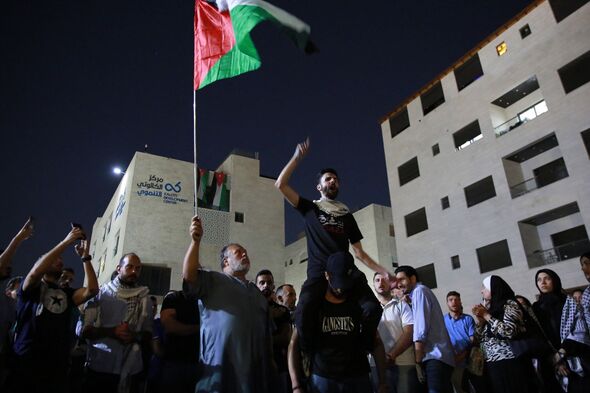Hamas has called for “a day of overwhelming anger” in response to the assassination of political leader Ismail Haniyeh in Tehran, stoking fears of an all-out war between Iran and Israel.
Haniyeh’s killing is widely believed to have been green-lit by Israeli PM Benjamin Netanyahu, although the country has neither admitted nor denied the claims. However, Israel has acknowledged responsibility for an airstrike that killed Hezbollah leader Fuad Shukr in Beirut.
US President Joe Biden has voiced his concerns at the deteriorating situation while Secretary of State Antony Blinken has called for “all parties” in the Middle East to avoid escalatory actions that could plunge the region into further conflict.
In a clear indication of the spiralling tensions, a statement issued by Hamas earlier said: “We call for prayers today, Friday, for the soul of the Mujahid leader Ismail Haniyeh, in all mosques in the world.
“Let Friday be a day of overwhelming anger in condemnation of the assassination and rejection of the genocide in the Gaza Strip.”
There are concerns the killings of Haniyeh and Shukur may prove the spark that ignites the Middle East, with Iran threatening to respond after the attack on its territory.
Yesterday, the Israeli military confirmed that the head of Hamas’ military wing, Mohammed Deif, was also killed in an airstrike in Gaza earlier this month.
During a late-July visit to the US, Mr Netanyahu said his country was determined to prevail against Hamas. Asked directly by journalists on the point later, he said that Israel hoped for a ceasefire soon and was working for one.
Also speaking yesterday, Mr Biden said he was “very concerned” that the violence in the Middle East could escalate, adding that Haniyeh’s killing has “not helped” efforts to negotiate a ceasefire in Israel’s war with Gaza.
Mr Biden said he’d had a “very direct” conversation with Israeli Prime Minister Benjamin Netanyahu earlier in the day, repeating “very direct” for emphasis.
He added: “We have the basis for a cease-fire. He should move on it and they should move on it now.”
Separately, Lebanon’s Health Ministry said an Israeli airstrike on a southern village has killed four people and wounded five.
The ministry said the four killed in Thursday’s airstrike on the village of Chamaa were Syrian citizens.
It said five Lebanese citizens were wounded in the same airstrike.
Hezbollah leader Hassan Nasrallah leader said in a speech yesterday that his fighters had stopped carrying out attacks along the border after an Israeli airstrike on Beirut on Tuesday which killed a top military commander with the group.
Hezbollah later said that it fired dozens of Katyusha rockets toward the Matzuva kibbutz in northern Israel in retaliation for the airstrike.
Mr Nasrallah said Hezbollah will resume attacks today but this will not be part of the retaliation that the group plans to carry for the death of commander Fouad Shukur.
Israel said the strike that killed Shukur was in retaliation for a rocket attack on Saturday that killed 12 young people in the town of Majdal Shams in Syria’s Israeli-occupied Golan Heights. Nasrallah on Thursday repeated the group’s denials that it fired the rocket that struck Majdal Shams.
